Being a college professor would be a great job! You do a little teaching, and get the summers off!
–Â frequently expressed misunderstanding
To be clear: being a professor is a great job. Since I elect not to teach during the summer, I can devote more –Â though not all –Â of my time to research and writing. But the main thing I get “off” during the summer is a paycheck. Kansas State University last paid me on May 24th, and my next check arrives on September 13th. (Classes begin tomorrow – Monday, August 26th.)
As part of my continuing efforts to dispel the surprisingly pervasive myth that academics lounge by the poolside all summer, here is how I spent my “summer vacation” this year.
Conferences. I gave two conference presentations, gave two invited talks, and co-chaired (and co-organized) one panel. All were different, and but one all were new material. So, I also wrote these.
- “Manifesto for a Comics-Children’s Literature Alliance” at the 40th Annual Children’s Literature Association Conference in Biloxi, Mississippi, on June 14th.
- “How, Where, and Why to Publish Your Book” (invited talk) at University of Winnipeg (Manitoba, Canada) on June 24th. This was a longer and revised version of “How to Publish Your Book,” which I first gave on a professional development panel at a Children’s Literature Association conference some years ago.
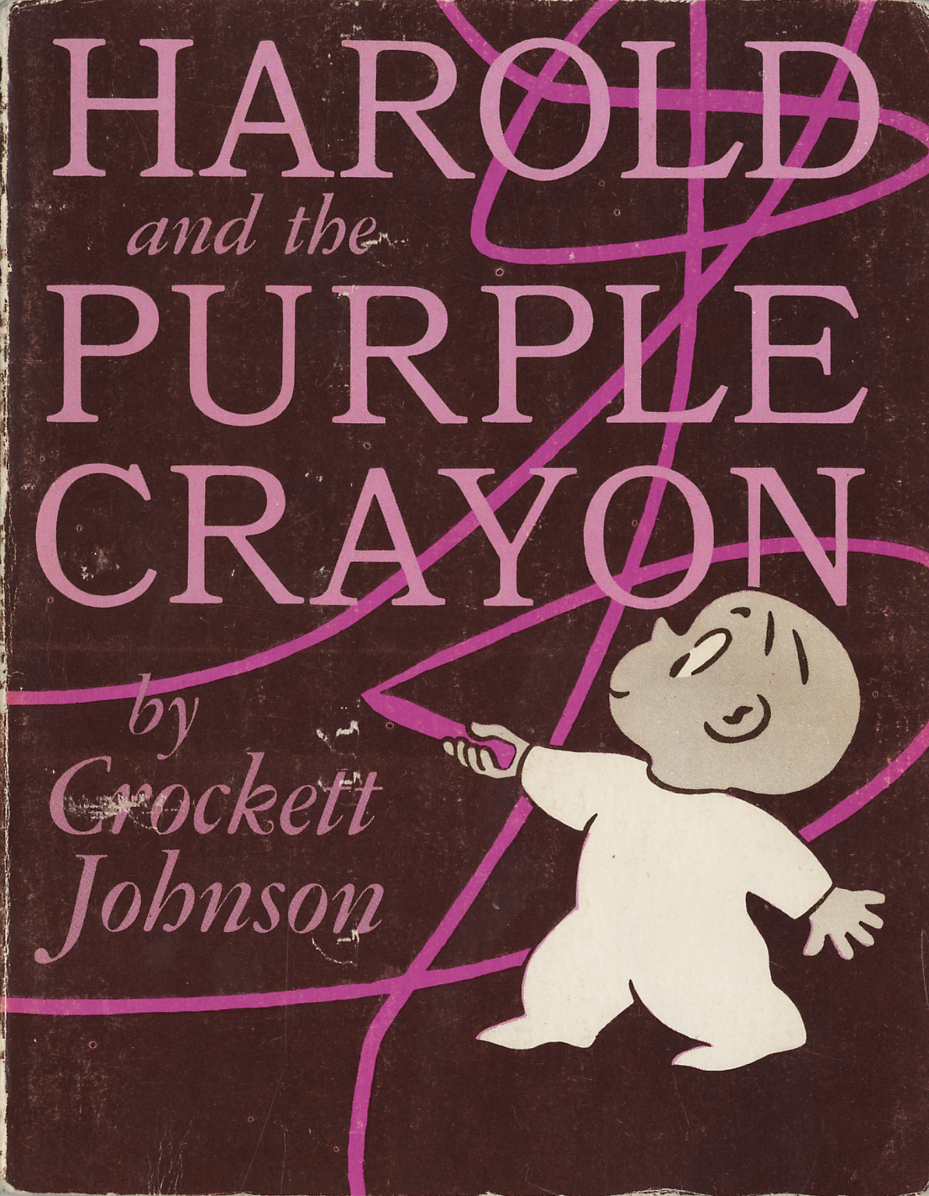 “‘He came up thinking fast’; or, How does Crockett Johnson’s Harold and the Purple Crayon work?” (also invited) at the University of Winnipeg’s Visual/Verbal Texts Symposium on June 25th. This was a labor of love for me. It aims to be a tour de force close-reading of Harold and the Purple Crayon, revealing just how complex such an apparently “simple” book really is. I look forward to expanding it for publication.
“‘He came up thinking fast’; or, How does Crockett Johnson’s Harold and the Purple Crayon work?” (also invited) at the University of Winnipeg’s Visual/Verbal Texts Symposium on June 25th. This was a labor of love for me. It aims to be a tour de force close-reading of Harold and the Purple Crayon, revealing just how complex such an apparently “simple” book really is. I look forward to expanding it for publication.- “Whiteness, Nostalgia, and Fantastic Flying Books: The Disappearance of Race in William Joyce” at the Biennial Conference of the International Research Society for Children’s Literature in Maastricht, Netherlands, on August 12th. This will form part of a book called Erasing Race in Children’s Literature.
- “Keywords for Children’s Literature: A Roundtable Discussion,” co-chaired with Lissa Paul, at the Biennial Conference of the International Research Society for Children’s Literature, on August 13th. As I note in my previous blog post, this panel was devoted to conceiving a second edition of Keywords for Children’s Literature (2011) –Â should sales of the current edition warrant –Â that better takes into account the broader, international world of children’s books.
Cost. I picked up maybe 40%-45% of the expenses for conferences. In addition to the three conferences where I presented (mentioned above), I also attended a fourth. Here’s how it breaks down. (Dates include travel.)
- Children’s Literature Association Conference in Biloxi, Mississippi, June 12-16. Not covered by the university or sponsor of event. Kansas State University provides funds for less than one conference each year. So, at this point in the year, such conferences are always self-funded.
- Visual/Verbal Texts Symposium in Winnipeg, Manitoba, June 24-28. All expenses covered by organizers of event. Canada makes available far more public funds for the Humanities than the U.S. does, and the organizers won financial support for the conference.
 Comic-Con in San Diego, California, July 17-22. As an Eisner nominee, I paid no registration fee. But the plane tickets, hotel, and food (except for the Eisner Awards banquet, which was covered) were all self-funded. For what I did and learned there, see my reports on Comic-Con 2013.
Comic-Con in San Diego, California, July 17-22. As an Eisner nominee, I paid no registration fee. But the plane tickets, hotel, and food (except for the Eisner Awards banquet, which was covered) were all self-funded. For what I did and learned there, see my reports on Comic-Con 2013.- Biennial Conference of the International Research Society for Children’s Literature in Maastricht, Netherlands, August 10-14. Â Kansas State University has a fund to which one can apply (once a year) to fund international conferences. I got lucky this year, and over 90% of the expenses for this were covered! (I will this week submit my receipts for reimbursement.) For a report on the conference, see “Dutch Treat.”
Writing. I wrote two new essays, successfully expanded a third, and completed a failed revision on a fourth. (What do I mean by “completed a failed revision”? I’ll explain in a moment.) I also wrote – or, really, co-wrote – a fellowship proposal.
- “Children and Comics” was the sole piece connected to any of the conference presentations. It’s a radially recast “Manifesto for a Comics-Children’s Literature Alliance,” and will –Â if editors Bart Beatty and Charles Hatfield like it –Â appear in The Cambridge Companion to Comics next year.
- “Wild Things, I Think I Love You: Maurice Sendak, Ruth Krauss, and Childhood.” It would have helped if I’d paid attention to the email inviting me to contribute this piece to a special section on Sendak. I’d thought the journal asked for a 4000-word piece, and so I wrote nearly 6000 words with the aim of trimming it down to 4000. Then I checked the email, and learned that the request was in fact for a 1500-word piece. Oops. With the assistance of Karin and of editors at the journal, I managed to get it down under 2000 words.
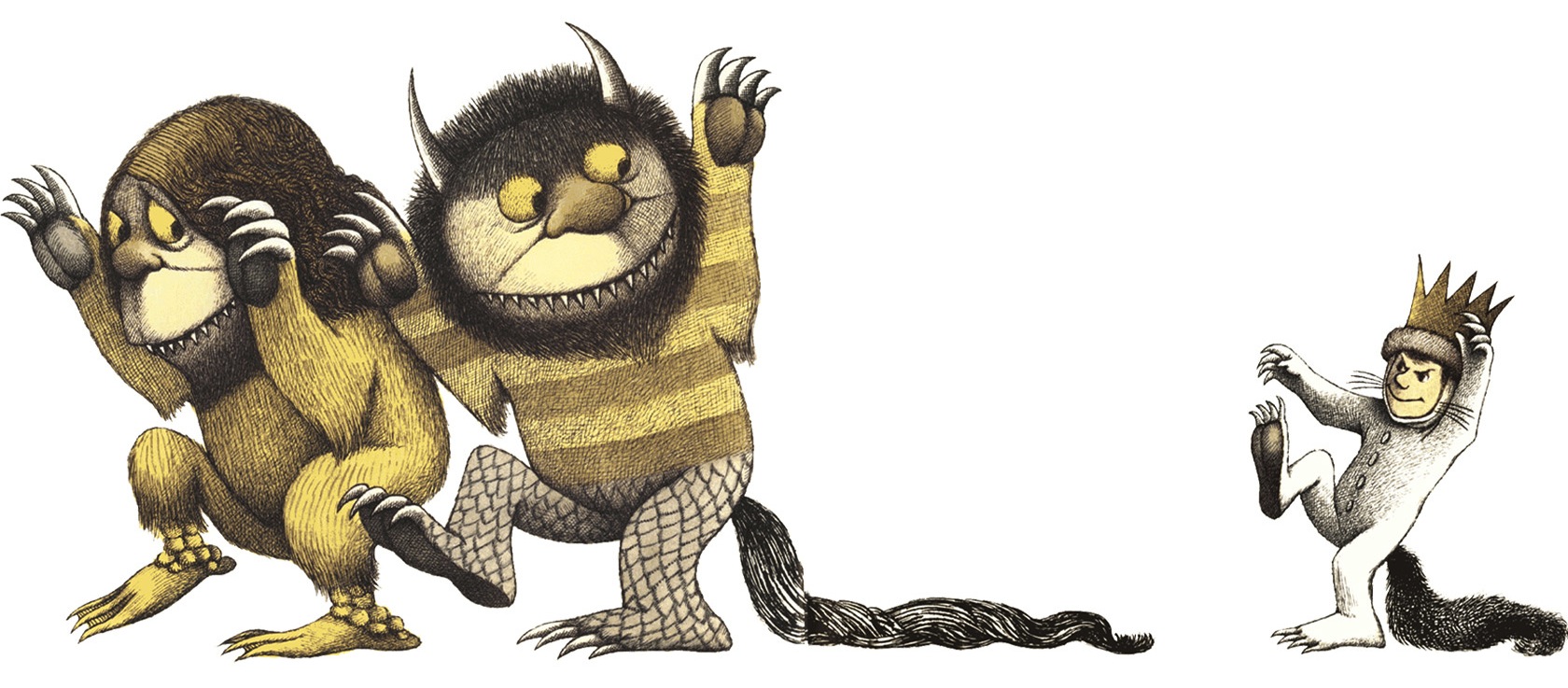
- “A Manifesto for Children’s Literature; or, Reading Harold as a Teen-Ager” is a revised and expanded version of the blog post by the same name. A journal’s editor read it and asked me to work up a longer version of it. I’ve really enjoyed working on it because it’s more autobiographical than what I usually write, and because it allows me to articulate more fully a vision of why children’s literature matters to people of all ages.
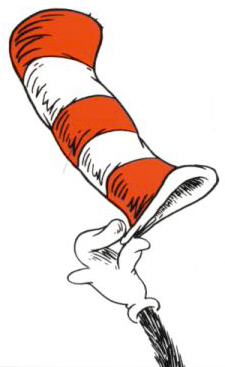 “Was the Cat in the Hat Black?: Seuss and Race in the 1950s” continues to trudge along, though is currently stranded by the side of a lonely highway, hoping a tow truck shows up soon. (I’ve written previously about this ill-fated piece.) One reader asked for some revisions. I addressed those. No problem. The other reader said revise and resubmit, and that… has me stumped. On the one hand, I feel that the other reader may miss the point (which, of course, means I need to be clearer). On the other hand, I feel that I am missing the point and am hopelessly out of my depth. I’ve done all I can, and am now turning to others for assistance. Happily, a brilliant scholar and gifted writer has very kindly agreed to take a look and offer some guidance. (Not sure if that person would want to be named in this blog, but if you’re reading this, I’m grateful! Dinner’s on me at ASA!)
“Was the Cat in the Hat Black?: Seuss and Race in the 1950s” continues to trudge along, though is currently stranded by the side of a lonely highway, hoping a tow truck shows up soon. (I’ve written previously about this ill-fated piece.) One reader asked for some revisions. I addressed those. No problem. The other reader said revise and resubmit, and that… has me stumped. On the one hand, I feel that the other reader may miss the point (which, of course, means I need to be clearer). On the other hand, I feel that I am missing the point and am hopelessly out of my depth. I’ve done all I can, and am now turning to others for assistance. Happily, a brilliant scholar and gifted writer has very kindly agreed to take a look and offer some guidance. (Not sure if that person would want to be named in this blog, but if you’re reading this, I’m grateful! Dinner’s on me at ASA!)- Marie Curie Fellowship. I frankly think I’m a long shot for this. But, Mick Gowar and Zoe Jaques kindly invited me to apply. Thanks to their efforts and the efforts of others at Anglia Ruskin University, it’s submitted. If I get it, it will help fund my sabbatical year and relocate me to England. Note to non-academics: Every seven years, we can apply for a sabbatical: you get either one semester at full pay or a full year at half pay. I’m going for the full year and trying to make up the difference.
Another note to non-academics reading this: I don’t think I get paid for any of the essays. I may receive compensation for the Cambridge Companion piece (I’ve yet to see that contract), but academic publications typically do not pay. At best, you get a copy of the publication.
Also, while I’m calling the above “writing,” there is of course also research involved. Most of this I did myself, though I also employed Shaun Baker to seek articles for me. And I consulted him and Mark Newgarden on the “Children and Comics” piece, since they know comics better than I do. Thanks, Mark and Shaun! And thanks to Michelle Martin and Erica Hateley for sharing unpublished work that I cited in the William Joyce paper. Indeed, thanks to everyone else who has offered ideas or assistance! (As I write these words, I reflect upon how much I’ve learned from others –Â and, while I strive to acknowledge that in each work, I am also aware that a list of credits would impede readers of this post.)
Teaching. I choose not teach in the summer, but I do have to plan future classes. Speaking of assistance, I’m grateful to the experts I’ve consulted with questions about the graduate-level African American Children’s Literature course I’m teaching in the Spring of 2014. This is the first time I’ll be teaching this. Some courses we teach because we’re experts; others we teach because we want to become experts. For me, this course is definitely the latter. So, thanks to Gerald Early, Michelle Martin, Kate Capshaw Smith, and Ebony Elizabeth Thomas for sharing their knowledge.
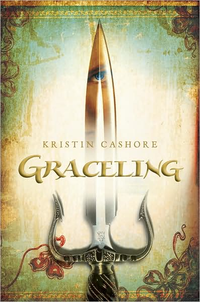 The Fall 2013 courses are both ones that I’ve taught before. I changed some of the books on the Literature for Adolescents class, adding: Kristin Cashore’s Graceling, Francisco X. Stork’s The Last Summer of the Death Warriors, and this year’s “K-State First Book,” Ernest Cline’s Ready Player One. The Harry Potter’s Library course remains roughly as it did the last time I taught it (2011). I say “roughly” because this time we’ll actually get to use Pottermore, which was still in beta in the fall of ’11.
The Fall 2013 courses are both ones that I’ve taught before. I changed some of the books on the Literature for Adolescents class, adding: Kristin Cashore’s Graceling, Francisco X. Stork’s The Last Summer of the Death Warriors, and this year’s “K-State First Book,” Ernest Cline’s Ready Player One. The Harry Potter’s Library course remains roughly as it did the last time I taught it (2011). I say “roughly” because this time we’ll actually get to use Pottermore, which was still in beta in the fall of ’11.
Reviewing and editing manuscripts. Â As editor for Routledge’s Children’s Literature and Culture series, I edited four books, reviewed two manuscripts, and responded to five book proposals. I also reviewed a manuscript for a children’s literature journal.
Only one committee meeting! For an internal grant administered by Kansas State University. I had to review the grant proposals beforehand, but still – only one meeting is unusual for an academic. I doubt any of my peers had just one committee meeting this summer.
Other writing. There’s correspondence with editors, authors I’m editing, my agent (who is also a friend), friends, other scholars, students, former students, future students, and people who kindly invite me to come and give talks. I wrote one letter of recommendation for a colleague applying for a fellowship. And things I’m forgetting, I’m sure.
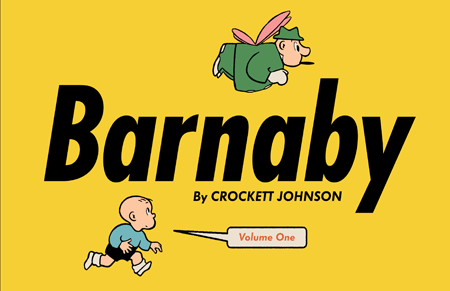 Barnaby! In May, while visiting friends and family in New England (more on that in a moment), I visited the Ruth Krauss Papers at the University of Connecticut to seek scans of a bonus item we’ll include in Crockett Johnson‘s Barnaby Volume Five: 1950-1952 (Fantagraphics, 2017). In Cambridge, I stopped by Harvard’s archives for some reconnaissance on strips for Barnaby Volume Two: 1944-1945 (coming from Fantagraphics next year). There were several email exchanges on this, and I’m still working to hunt down a few rogue strips. I edited one of the essays that will appear in Volume Two, talked to a journalist or two about Barnaby Volume One: 1942-1943 (published earlier this summer), and am currently in conversation about having a book party in October in NYC. There are other Barnaby-related developments that I’ll wait for Fantagraphics to announce.
Barnaby! In May, while visiting friends and family in New England (more on that in a moment), I visited the Ruth Krauss Papers at the University of Connecticut to seek scans of a bonus item we’ll include in Crockett Johnson‘s Barnaby Volume Five: 1950-1952 (Fantagraphics, 2017). In Cambridge, I stopped by Harvard’s archives for some reconnaissance on strips for Barnaby Volume Two: 1944-1945 (coming from Fantagraphics next year). There were several email exchanges on this, and I’m still working to hunt down a few rogue strips. I edited one of the essays that will appear in Volume Two, talked to a journalist or two about Barnaby Volume One: 1942-1943 (published earlier this summer), and am currently in conversation about having a book party in October in NYC. There are other Barnaby-related developments that I’ll wait for Fantagraphics to announce.
Seuss TV. Also during that trip east, I taped an interview on Dr. Seuss with A&E Biography in NYC. I have no idea whether they’ll use the footage, but I had fun doing it.
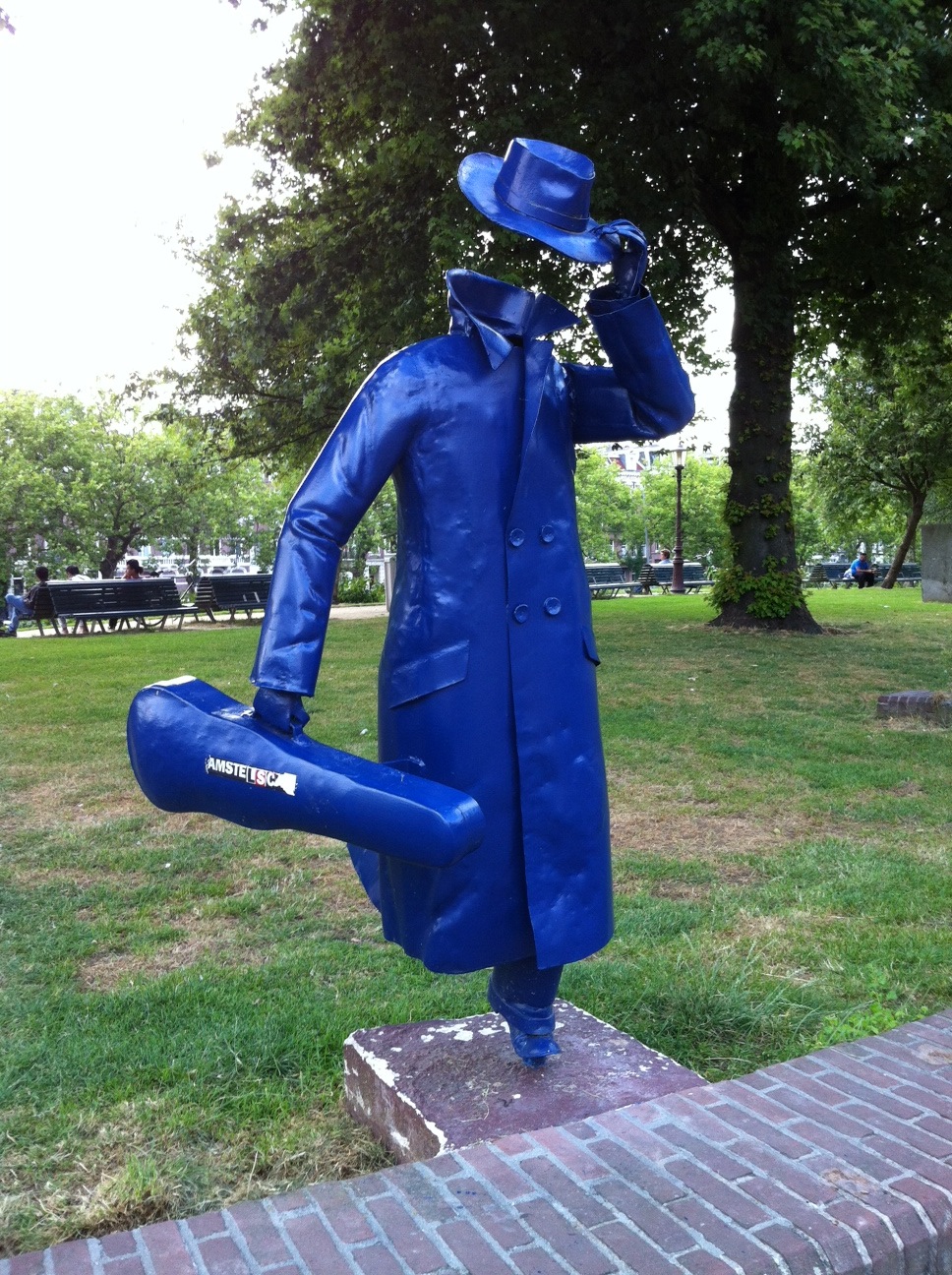 Yes, I had fun. In May, I attended my twenty-fifth high-school reunion in Connecticut, and visited friends in New York City, Rhode Island, and Massachusetts. That was great. In August, I went hiking with family in Switzerland (en route to the conference in Maastricht). While there, I also played with my niece (the subject of the Emily’s Library series). We read stories, played with a jar of buttons, and with Matchbox cars. I pushed her on the swing, and she served me many imaginary breakfasts, warning me each time “Be careful. It’s hot.” I also spent time with Emily’s mommy and daddy, my mother, her second cousin, and my cousin. In Amsterdam, I also got to hang out with him and his partner. He (my cousin) and I became reacquainted last summer after a 29-year gap. My family is spread out across the globe, and as we age I appreciate more and more the remaining time we have together.
Yes, I had fun. In May, I attended my twenty-fifth high-school reunion in Connecticut, and visited friends in New York City, Rhode Island, and Massachusetts. That was great. In August, I went hiking with family in Switzerland (en route to the conference in Maastricht). While there, I also played with my niece (the subject of the Emily’s Library series). We read stories, played with a jar of buttons, and with Matchbox cars. I pushed her on the swing, and she served me many imaginary breakfasts, warning me each time “Be careful. It’s hot.” I also spent time with Emily’s mommy and daddy, my mother, her second cousin, and my cousin. In Amsterdam, I also got to hang out with him and his partner. He (my cousin) and I became reacquainted last summer after a 29-year gap. My family is spread out across the globe, and as we age I appreciate more and more the remaining time we have together.
My friends are also spread out around the planet. Since many are also academics or connected to publishing (comics, children’s books), conferences are not only learning experiences but a chance to catch up with people I care about.
They are of course learning experiences (see previous post), as are all of my travels. I visit museums and bookshops, walk along trails and through city streets, listen to and talk with people. While I sit in planes and trains, I read books, I read book proposals, I edit books, I write emails, and I write whatever the next thing is –Â the talk, the essay, the book.
It’s a great job, being able to learn and share what you learn. I’m fortunate to have work from which I derive meaning. Heck, part of my job this year was going to Comic-Con. Sure, it wasn’t free –Â but still! Â AND I traveled to five US states and three other countries.*
I love my job.
But I don’t get summers off.
___________________
*Â Â One of those countries and one of those states were strictly personal, not business. But that’s still a fair bit of travel.
Related posts:
- Summertime, and the Living Is Busy (19 May 2012). The conclusion to my “What Do Professors Do All Summer?” series, in which I publicly kept track of what I did each day for one week.
- What Do Professors Do All Week? (26 Feb. 2011). The conclusion to my “What Do Professors Do All Day?” series, in which I track a week’s worth of academic labor during the semester.
- Professors Work Harder Than You Do, David C. Levy (26 Mar. 2012). A brief response to an “expert” who lacks expertise.
- Well, at least she published a sort-of correction (7 Jan. 2013). A rebuttal to further misinformation about what professors do.


rockinlibrarian
Alex Lichtenstein
Pingback: 3 Tips for Taking Stock When Summer’s Vanishing – ProfHacker - Blogs - The Chronicle of Higher Education